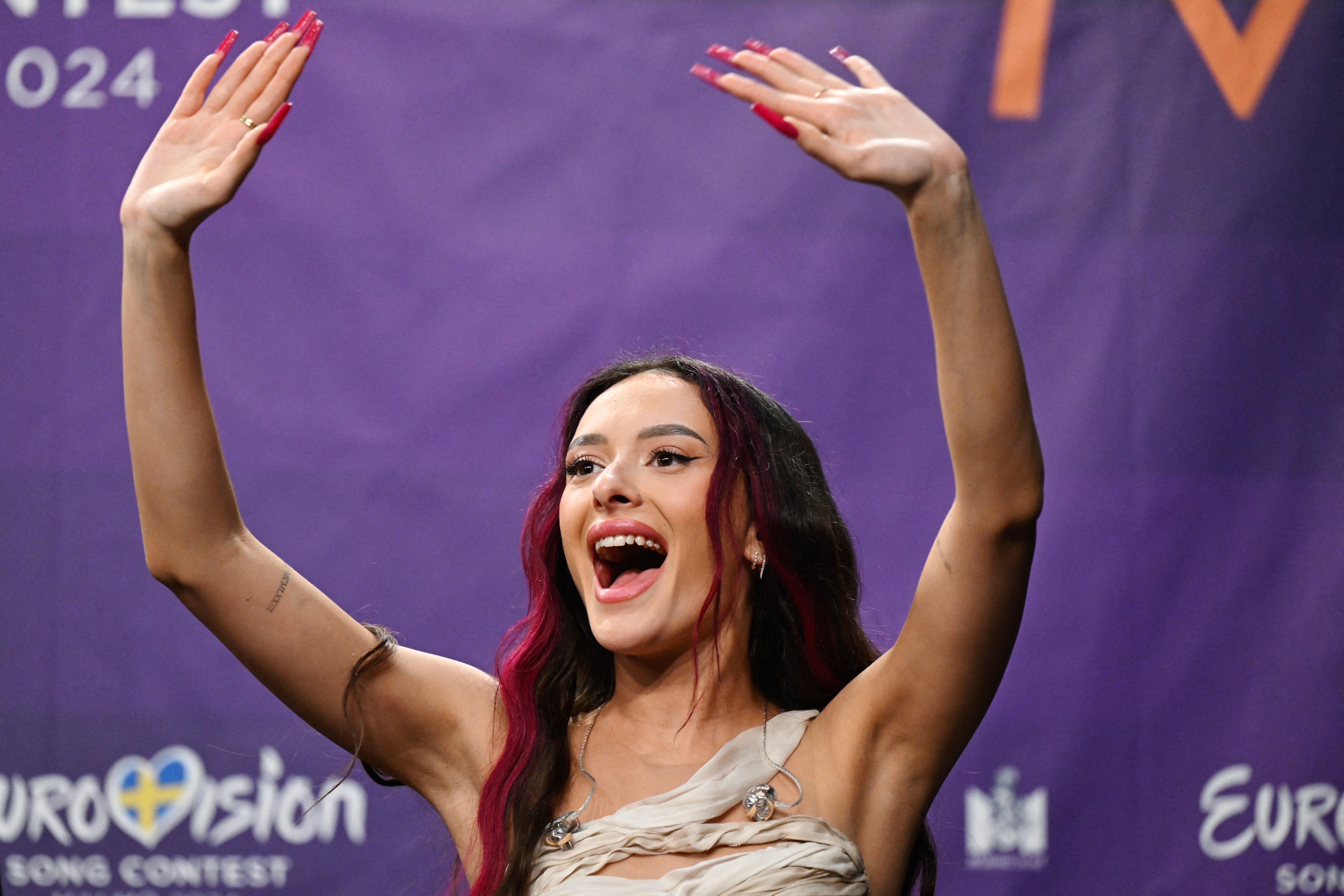Second Eurovision 2024 semi-final reveals 10 qualifiers to advance to Saturday’s grand final
Earlier in the day, thousands of pro-Palestinian demonstrators took to the streets of host city Malmö to protest Israel’s participation
Your support helps us to tell the story
From reproductive rights to climate change to Big Tech, The Independent is on the ground when the story is developing. Whether it's investigating the financials of Elon Musk's pro-Trump PAC or producing our latest documentary, 'The A Word', which shines a light on the American women fighting for reproductive rights, we know how important it is to parse out the facts from the messaging.
At such a critical moment in US history, we need reporters on the ground. Your donation allows us to keep sending journalists to speak to both sides of the story.
The Independent is trusted by Americans across the entire political spectrum. And unlike many other quality news outlets, we choose not to lock Americans out of our reporting and analysis with paywalls. We believe quality journalism should be available to everyone, paid for by those who can afford it.
Your support makes all the difference.Israel has qualified for the grand final of the Eurovision Song Contest following a tense semi-final in Malmö today (9 May).
Earlier in the day, thousands of pro-Palestinian demonstrators took to the streets of the Swedish port city to protest the country’s participation in the competition.
Israel’s journey to the final on Saturday (11 May) means that further protests are now expected that day.
Latvia, Austria, the Netherlands, Norway, Greece, Estonia, Switzerland, Georgia and Armenia also went through following today’s semi-finals
They join the 10 countries who qualified from the first semi-final on Tuesday (7 May): Serbia, Portugal, Slovenia, Ukraine, Lithuania, Finland, Cyprus, Croatia, Ireland and Luxembourg.
Those 20 qualifiers will compete in Saturday’s final along with the “big five” who automatically qualify: the UK, France, Spain, Germany and Italy.

Sweden also automatically qualifies as host, so the final will see a total of 26 countries compete to be crowned the Eurovision victor.
Pro-Palestinian groups have said that they plan to march again on Saturday. They have been calling for other countries to boycott the contest over Israel’s offensive in Gaza following Hamas’s 7 October attack.
Police estimated that between 10,000 and 12,000 people took part in today’s demonstration, which saw Palestinian flags being waved through the historic Stortorget square. Among those in the crowd was the Swedish climate activist Greta Thunberg.
Israel’s Eurovision entry, Eden Golan, was booed during a dress rehearsal on Wednesday. She was met with chants of “Free Palestine” and jeers by some members of the crowd.
The European Broadcasting Union (EBU) has allowed Israel to enter this year’s song contest, despite the country’s ongoing attacks on Gaza.
The Palestinian death toll is believed to have reached 34,000 people.
Golan, 20, has told ITV News that she could not have asked “for a better year to be representing my country”. Ahead of the protests, BBC presenter Rylan Clark came to the defence of Eurovision.
Speaking from Malmö, Clark, who is hosting the BBC’s coverage alongside Graham Norton and Scott Mills, told ITV’s Good Morning Britain that the city is doing “an amazing job of hosting”.
“The climate in the world at the minute isn’t great and you know we’re not silly to not understand that there’s a lot going on in the world, but I think in the Eurovision bubble it’s a song contest, it’s all about the music and that’s what we’re here for,” said the 35-year-old.
“The city has done an amazing job, there’s a lot of demonstrations happening and people have got the right to do that, but it’s just about the music.”

Join our commenting forum
Join thought-provoking conversations, follow other Independent readers and see their replies
Comments